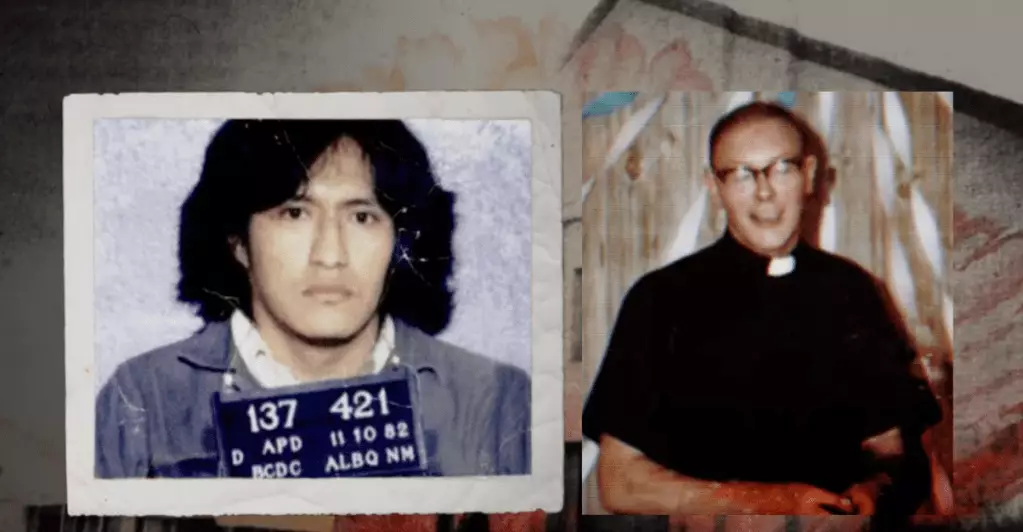In the quiet town of Odessa, Texas, a gruesome scene unfolded in 1981. The body of Father Patrick Ryan, a closeted gay Catholic priest, was discovered in a rundown motel, his lifeless form bound and battered. The circumstances surrounding this heinous act encapsulate a profound reflection on the failings of the American justice system. The tragedy extends far beyond the death of one man; it highlights the societal prejudices and systemic failures that led to the wrongful conviction of another—James Harry Reyos, a closeted Apache man, ensnared in a web of racial and sexual orientation bias that continues to resonate in today’s discussions around justice and equality.
Targeting the Vulnerable
Reyos’ case is a chilling reminder of how marginalized communities often find themselves at the intersection of systemic injustice. Authorities, in their rush to close a case and appease public outcry, seized upon Reyos as the perfect scapegoat. The narrative skewed toward vilifying an innocent man merely because he belonged to a minority group, both racially and sexually. Historical context plays a crucial role here; in 1980s America, particularly in a conservative community such as Odessa, being both Native American and gay was a dangerous combination. The local law enforcement’s choice to pursue Reyos, despite clear evidence pointing toward his innocence, demonstrates a profound failure—a commitment to preserving a narrative that bolsters their authority rather than seeking the truth.
Flawed Procedures and Misguided Justice
What makes Reyos’ wrongful conviction even more infuriating is the blatant negligence exhibited by law enforcement. After twenty long years in prison, it took a cultural shift and advances in forensic technology for the real story to surface. The Automated Fingerprint Identification System (AFIS), while nonexistent at the time of his trial, could have easily exonerated him, had his case been adequately handled. However, the negligence reached far beyond simple errors; it reflects a systemic decay where the legal framework fails to protect the most vulnerable, choosing instead to perpetuate stereotypes and biases that further entrench the injustices faced by marginalized communities.
A Story of Redemption and Resilience
The narrative takes a hopeful turn with the involvement of Chief Mike Gerke in 2017, whose re-investigation into Reyos’ case marked a pivotal shift in the quest for justice. Gerke’s motivation, sparked by familial connections to true-crime culture, illustrates the power of grassroots engagement in reforming broken systems. The new investigation unearthed substantial evidence—including ignored fingerprints—that has added momentum to Reyos’ fight for exoneration. This renewed fight, spearheaded by a team of dedicated individuals from the Innocence Project of Texas, underscores a crucial shift in the narrative: it is not enough to simply pursue justice; we must also acknowledge and rectify the failures of the past.
The Voice of Filmmakers and Advocates
Deborah Esquenazi’s documentary, “Night in West Texas,” serves as a compelling vehicle for advocacy, shedding light on the harrowing flaws in a system that often prioritizes expedience over justice. Esquenazi, with a track record of spotlighting injustices within the LGBTQ+ community, delivers a poignant examination of Reyos’ story, presenting it not as an isolated incident but as a reflection of broader societal issues. With each frame, the film invites audiences to grapple with their own perceptions of race, sexuality, and justice—forcing us to confront the uncomfortable realities that marginalized identities continue to endure within the legal framework.
Moving Forward: Institutional Change is Necessary
The saga of James Harry Reyos is not merely a historical footnote; it is a clarion call for systemic reform. As we navigate a world increasingly divided along lines of race, sexuality, and ideology, we must engage in critical conversations about the integrity of the justice system and its treatment of marginalized individuals. By amplifying stories like Reyos’, we can challenge the entrenched biases that warp our perception of justice. Change is imperative, not just for Reyos, but for all individuals trapped within a flawed system that too often exchanges truth for convenience.
In the face of overwhelming adversity, Reyos’ story is one of resilience, a testament to the human spirit. It urges us to reconsider who we label as criminals and who deserves our compassion. True justice demands acknowledgment of our shared humanity and a commitment to equity, one that protects the rights of even the most vulnerable among us.


Leave a Reply